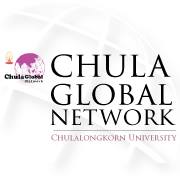Rationale

In the age of globalization, there is a need to know them in order to know us. Those who need to know are people working in the public sector (e.g. officials dealing with external affairs, security, cooperation with foreign countries etc.), the private sector (operators of businesses and activities) and civil society.
The subject of knowing is the characteristics of the areas with which Thailand has relations, which would be of benefit to the country. At present, the number of people who have such knowledge is still small, and scattered in isolation in different functional and locational spaces. Furthermore, Thai society does not have the mechanism to put these knowledge into good use, and does not have the mechanism to build up the body of in-depth and specialized knowledge, in such a way that the knowledge can be used to support practitioners in their work.
Chulalongkorn University is well-placed to play a constructive role here. Its faculty members are knowledgeable and well qualified in two important ways: the expertise in the subject matter and the expertise in specific geographical areas. The university offers many area studies programmes, for example Thai Studies, European Studies, Southeast Asian Studies and Korean Studies. These study programmes combine the study of various disciplines, such as international relations, politics and administration, law, economics, international trade, social and cultural studies. In addition, the faculties in the disciplines of social sciences and the humanities offer courses on specific areas of the world, including the North America, Latin America, Western Europe, Middle East, South Asia, Southeast Asia and Australia.
Within Chulalongkorn university, many centres of regional studies are well known internationally, namely the Institute of Asian Studies, Social Research Institute, Institute of Thai Studies, Institute of International and Security Studies, Institute of Environmental Research, Institute of Aquatic Resources College of Health Sciences, International Relations Department, Centre for European Studies, Centre for Peace and Conflict Studies, Centre for Chinese studies, Centre for Muslim Studies, Centre for Mekong Research, Centre for Migration Studies. In addition, Chulalongkorn University is the host of the ASEAN University Network, Centre for the Promotion of Asian Regional Research of the Korean Foundation, for example.
However, the main limitation of the university is that the above-mentioned expertise is scattered among the faculties and researchers within separate units, with little cooperation among the units, thereby lacking the force of the combined strength which is essential in the world of competition between universities today. Chula Global network will be the platform and forum for the exchange and integration of the various expertises from within the university, through the provision of support for curriculum development, teaching and research, organization of meetings and provision of academic services.
Chula Global Network will not only coordinate activities within the university, but will have another important mission, to promote the awareness of Chulalongkorn University among the wider international academia as a leader in the field of regional studies and the source of information and analysis on problems at the local, regional and global levels in an integrated and multidisciplinary way, as proposed in the Master Strategy Thai-Asian-World Educational Gateway in the Strategy of Progress of the Chulalongkorn University Development Plan 2008-2012.
![]()

